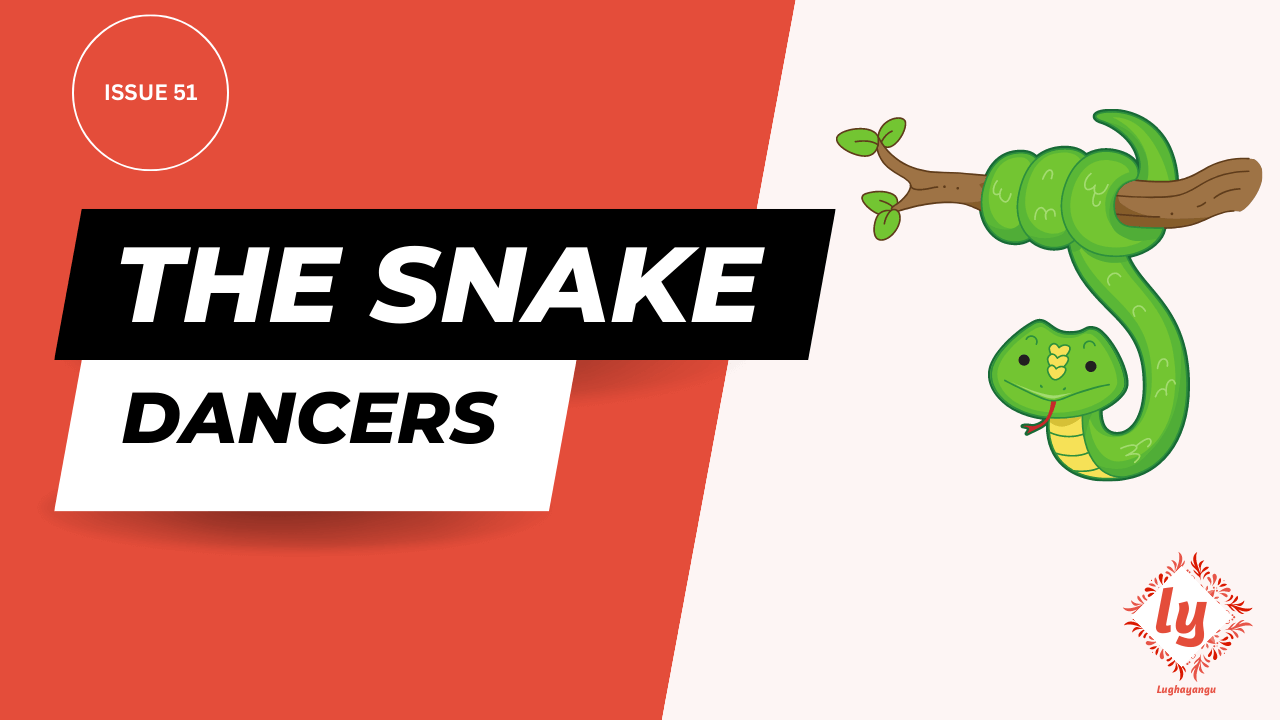
For many, snakes embody fear and danger.
Your first instinct is to fight it or run for your dear life.
However, among the Wonunguli clan of the Zigua tribe of Tanzania, snakes are their besties!
The Wonunguli have perfected the art of dancing with snakes.
Not just any snake, dangerous and venomous snakes! The black Mamba, Boomslang, python and many more.
A bite from a black Mamba and the symptoms become apparent within ten minutes. Without antivenom treatment, your body collapses in 45 minutes, and death is inevitable in 7-15 hours.
Why do they dance with the snakes?
It is a way to sensitize and educate the community about snake handling and medicine.
The easiest way to capture a human's attention is to entertain. Snake dancing attracts huge crowds who, in the process, learn how to handle snakes and identify the dangerous ones.
The snake handlers also believe that playing with snakes, especially when they are shedding their skins, helps to make the bond stronger.
...
Did you Know?
Snakes are not poisonous; they are venomous. Plants, frogs and ratrat 😁(rat poison) are poisonous.
...
How does one become a Mnunguli?
The skill is passed down from one generation to another.
It takes years of learning and practice to become an expert Mnunguli.
During the apprentice stages, students are taught how to handle snakes, identify the type of snake by the bites, and, most importantly, treat snake bites using traditional herbs and other methods.
In fact, many people in the Zigua and neighbouring communities prefer getting treatment from the Wonunguli "medicine people" to going to the hospital in case of a snake bite because of how reliable, and efficient they are.
They also help with pest control. If snakes are found in any of the villages, they are invited to come and take them away.
To ensure there are no casualties when handling these venomous snakes on display, they are defanged, a practice most herpetologists do not support.
What do you think of this practice by the Wonunguli? Is it right, wrong or complicated? Let me know by replying to this email.
LANGUAGE OF THE WEEK 🌍🎉
Zigua, also known as Zigula or Chizigua, is spoken in Northern Pwani Region and western southern Tanga Region in Tanzania and Jamaame, Kismayo, Mogadishu, and the Juba River valley in Somalia by the Wazigula people.
The language has two dialects; Zigula, spoken primarily in Tanzania and Mushunguli, spoken in Somali.
The Zigua people in Somalia are part of the Somali Bantus, descendants of enslaved individuals from various Bantu ethnic groups from Southeast Africa, notably Mozambique, Malawi and Tanzania.
In the 19th century, the demand for labour increased due to the growth of plantation and industrial slave operations. To capitalize on this opportunity, the Sultan of Oman, Sayyid Said, moved his power centre from Oman to the African island of Zanzibar in 1840.
The Sultanate's sovereignty extended from northern Mozambique to southern Somalia. Africans from these areas were abducted into the slave trade. Tanzania, which now includes Zanzibar, was particularly terrorized.
Agents of the Sultanate of Zanzibar, in cooperation with some African tribes, carried out the slave trade from Mozambique and southern Tanzania.
They were forced to work plantations near the Indian Ocean coast and in the Shabelle River valley. Raids and prisoners of war were the typical sources of slaves.
In the early 20th century, Italian colonizers abolished slavery in southern Somalia. However, they later established over 100 plantations in the Jubba and Shebelle River Valleys and introduced labour laws that forced Bantu people to work as farm labourers in the mid-1930s.
Over time, some Bantus migrated to large Somali cities and found jobs as manual labourers and occasionally as semi-skilled tradesmen. Some communities assimilated into the Somali culture, while others, like the Zigua people, maintained their traditions and language.
In 1991, civil war broke out in Somalia, and the minority Bantus were particularly affected. By 1992, the Bantu began to flee southern Somalia for refugee camps in Kenya. Many more sought resettlement in Tanzania and Mozambique, the land of their ancestors; both countries refused to resettle them, citing internal problems. Others settled in the USA as migrants.
In June 2009, the Somali Bantus received a fresh start in their ancestral homeland of Tanzania after gaining citizenship.
Language Learning Tip
Learn about the culture: Learning a language is an enriching experience involving more than memorizing words on a page. It requires immersing oneself in the culture and history that shapes it. Understanding a culture's history, events, beliefs, and customs can give one a deeper appreciation for its people and their behaviour.
Special Mentions
📌 Traditional Luo Marriage Process - (Ayie and Nyombo)
📌Top 50 Trending Sheng words of 2023: improve your vocabulary
RIDDLE OF THE WEEK
What language does a billboard speak?
Bilengele mbiasa munkelende (Tshiluba) - Good things are found among thorns.
Till next time.
Join the Lughayangu Community!

